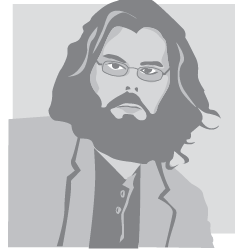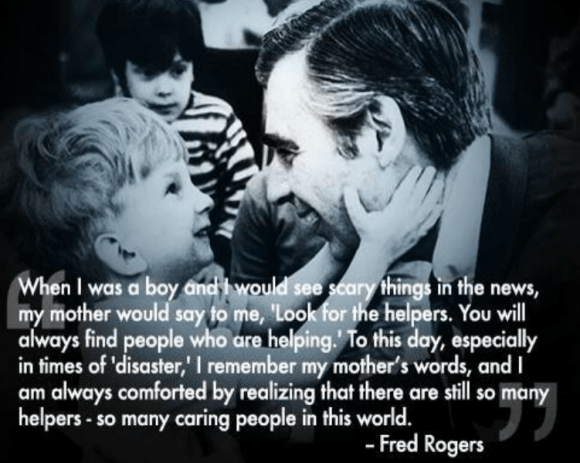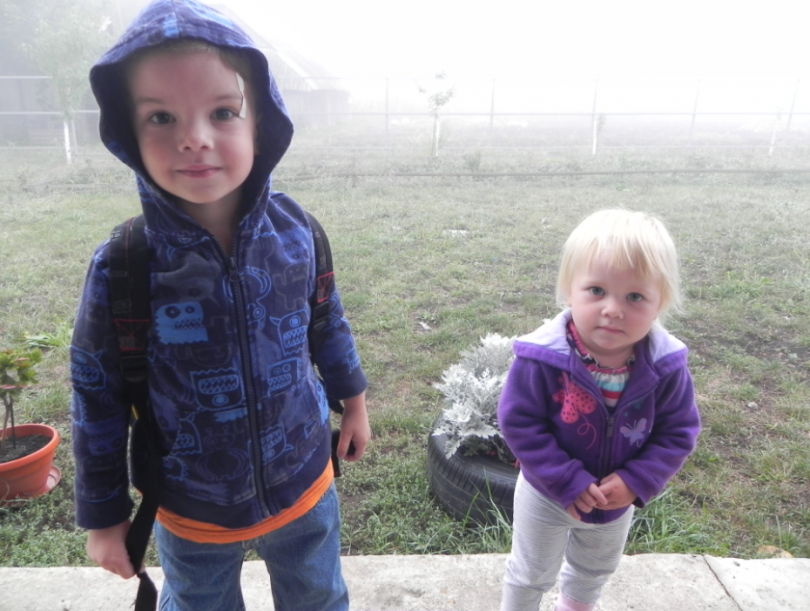 aNewDomain — Sometimes bad things happen. Sometimes people do bad things.
aNewDomain — Sometimes bad things happen. Sometimes people do bad things.
When bad people act, it is hard to make sense of the consequences. Mass shootings. Bombings. People driving into masses of pedestrians.
The quickest way to make sense of any such situation is to hate and fear.
But these events disproportionately affect our view of humanity. It’s why terrorism works. The shooter takes out a school. The news can either cover it to death or lose viewers to other networks. We all see the resulting carnage on a background of angry faces and strident voices.
Fred Rogers, of Mr. Rogers’ Neighborhood fame, used to tell children to look for the helpers. When bad things happen, when bad people do bad things, you will always find good people trying to help the victims, he said, quoting his mother.
And it’s true. A cop puts himself between bullets and survivors. EMTs get into harm’s way to pull people out of danger. Citizens make bandages out of their clothes.
When bad things happen, Mr. Rogers told generations for kids, look for the helpers.
 It was great advice. For children, this helps correct the biased data they’re receiving: It communicates the message that the world isn’t full of bad people. There are some bad guys but most people aren’t evil. And there are good ones, the “helpers,” too.
It was great advice. For children, this helps correct the biased data they’re receiving: It communicates the message that the world isn’t full of bad people. There are some bad guys but most people aren’t evil. And there are good ones, the “helpers,” too.
For adults, though, the takeaway can be a lot more complex.
A locus of control
We all come equipped with a locus of control. The locus of control is how much we perceive we have influence over our destinies. An inner locus means we feel very empowered, knowing our decisions matter and misfortune is our own fault. An external locus means the opposite: fate is capricious and our choices have little to do with outcomes.
When bad people do bad things, those bad things tend to involve the rest of us. You send your kids to school and expect they will be safe. And there isn’t anything you can do about it. A school shooting across the country reminds you of this fact: the fact that you can’t protect them. Not really.
Accidents, bombs, guns all drag your locus of control out towards the external.
Now you can sit and look for the helpers like Rogers suggested.
And helpers might come — or they might not.
Either way, you are depending on others – on capricious fate – to restore your faith in humanity. A child lacks agency and lacks the capacity to do much by way of helping but you have both these vital traits: agency and competence.
Don’t just wait for the helpers to come along and restore your faith in humanity. You’re a human. Act in good faith.
So pull people out of danger. Bandage up injuries. Call the police. Stand in the way of the bad guys. Do something.
Look for the children.
The children are watching and they don’t have the agency or the competence to be the helpers – but you do.
Even if you don’t want to, be the helper.
Do it simply because the children are watching.
This is where leaders come from.
For aNewDomain, I’m Jason Dias.
Cover image: MelissaInRomania, All Rights Reserved; Inside image: Quotemaster.org/Helpers, All Rights Reserved.













